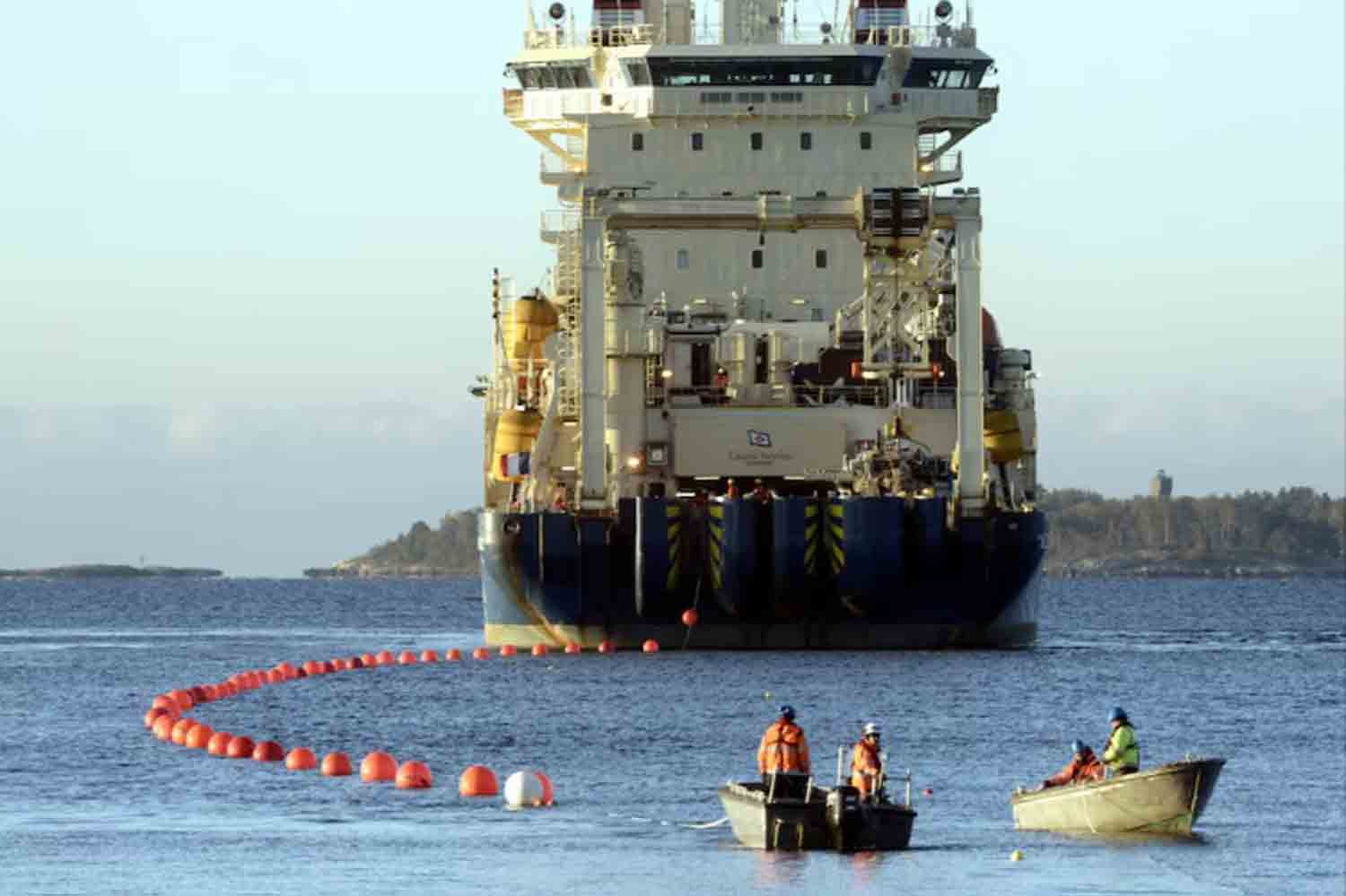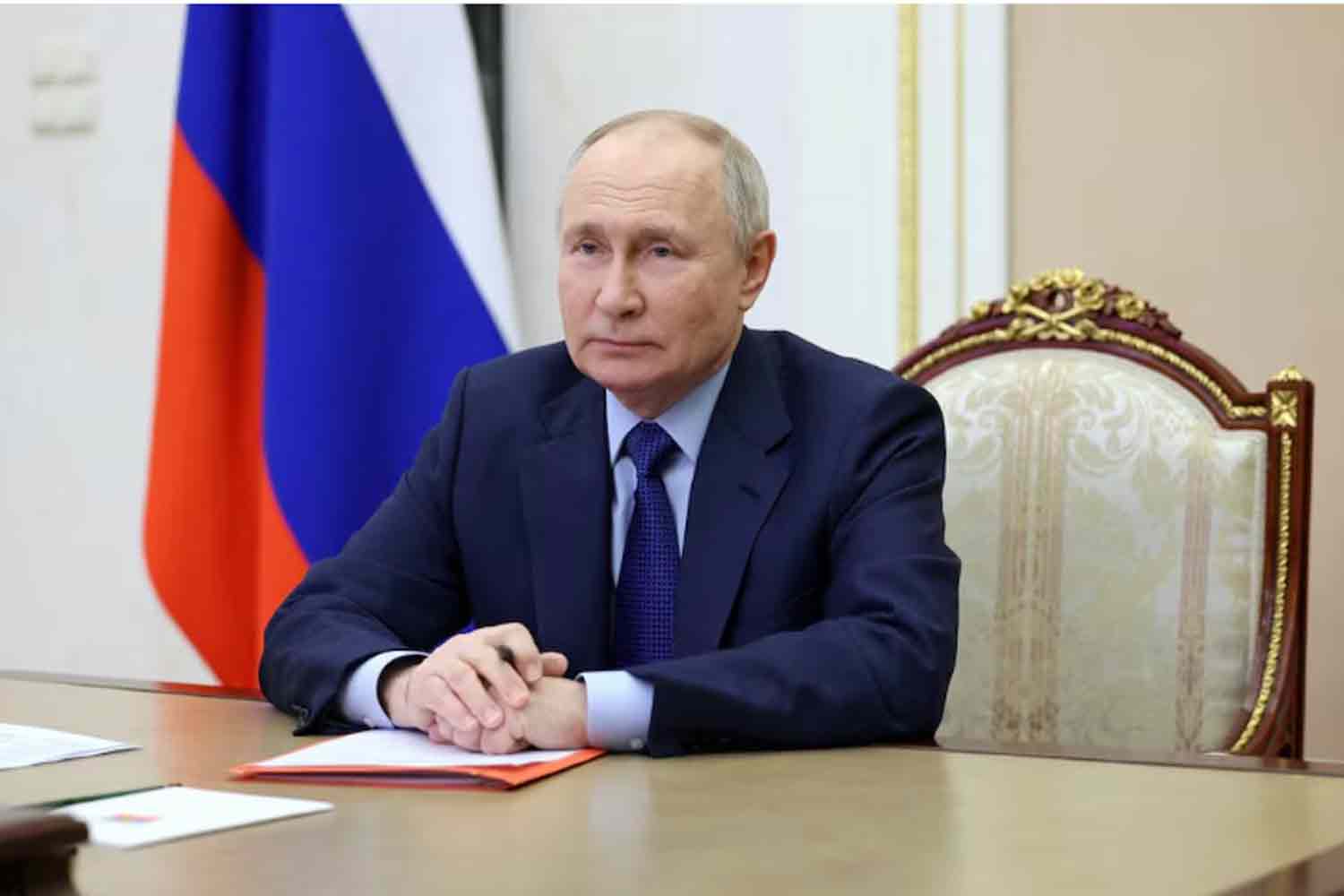European governments on Tuesday accused Russia of intensifying hybrid attacks against Ukraine’s Western allies, as Baltic nations began investigating the potential sabotage of two fibre-optic telecommunication cables in the Baltic Sea.
While European officials have not explicitly blamed Russia for the cable damage, countries such as Germany and Poland suggested that it was likely a deliberate act. In response, Lithuania’s armed forces increased their surveillance of the region.
The foreign ministers of France, Germany, Italy, Poland, and Britain issued a statement highlighting that “Moscow’s escalating hybrid activities against NATO and EU nations are unprecedented in their diversity and scale, posing significant security threats.”
This strong statement coincided with investigations into the complete severing of the Baltic cables, one of which connects Finland to Germany and the other linking Sweden to Lithuania, reminiscent of previous incidents in the heavily trafficked waterway.
Polish Foreign Minister Radoslaw Sikorski warned that if Russia continues its acts of sabotage in Europe, Warsaw would consider closing its remaining consulates in Poland, following discussions with several European foreign ministers in the Polish capital.
German Defence Minister Boris Pistorius echoed this sentiment during separate discussions in Brussels, stating, “No one believes that these cables were cut by accident.”
He further remarked, “We must also assume, even without definitive proof, that this is an act of sabotage.”
Moscow has consistently rejected allegations of sabotaging European infrastructure, asserting that such accusations are fabricated to undermine Russian interests as part of an information warfare campaign led by the West.
Two European sources indicated that the statement made on Tuesday was not a direct reaction to the recent cable disruptions.
European Commission Vice President Josep Borrell adopted a more measured approach, emphasizing that it is premature to assign blame.
“It would be irresponsible for me to attribute this incident, accident, or whatever you wish to call it, to any specific party,” he remarked during a press conference in Brussels.
One cable ceased operations on Sunday morning, while the other was affected less than 24 hours later on Monday.
INVESTIGATIONS
The Swedish Prosecution Authority announced the initiation of a preliminary criminal investigation into the damaged cables, which traverse Sweden’s exclusive economic zone in the Baltic Sea, amid suspicions of potential sabotage.
Swedish Civil Defence Minister Carl-Oskar Bohlin later informed Reuters that the nation’s armed forces and coastguard had detected ship movements that coincided with the disruption of the two telecom cables in the Baltic Sea.
“We take this matter very seriously, especially given the current security situation,” he stated.
The Swedish navy will deploy vessels equipped for underwater operations, including remotely operated vehicles, to aid in the investigation, as confirmed by the armed forces.
A NATO representative noted that the alliance’s Maritime Centre for the Security of Critical Undersea Infrastructure is collaborating closely with allies to ascertain the facts.
Finland’s National Bureau of Investigation has initiated an inquiry into the damaged subsea cable, with Sweden taking the lead in the investigation.
The most notable case of sabotage in the Baltic region involved the destruction of the Nord Stream gas pipelines in September 2022, occurring seven months after Russia’s full-scale invasion of Ukraine, which accelerated Europe’s transition to alternative energy sources.
Responsibility for those explosions remains unclaimed. While some Western officials initially pointed fingers at Moscow—an assertion the Kremlin labeled as “idiotic”—reports from U.S. and German media suggest that pro-Ukrainian groups may have been involved.
The companies responsible for the two affected cables have stated that the cause of the outages is still undetermined.
“It’s not a partial damage; it’s complete damage,” remarked a spokesperson for Arelion, the operator of the cable connecting Lithuania and Sweden. The company has since filed a police report regarding the incident.
Cinia, which owns the cable linking Finland and Germany, indicated that the cause of the breach could not be established until repair work commenced. The company noted that such repairs generally take between 5 to 15 days.
Dutch Defence Minister Ruben Brekelmans commented that he had no specific details regarding culpability, but noted, “We are observing an increase in activity, particularly from Russia, in our waters, which appears to be aimed at espionage and potentially sabotaging our critical infrastructure.”
Discover more from Defence Talks | Defense News Hub, Military Updates, Security Insights
Subscribe to get the latest posts sent to your email.





